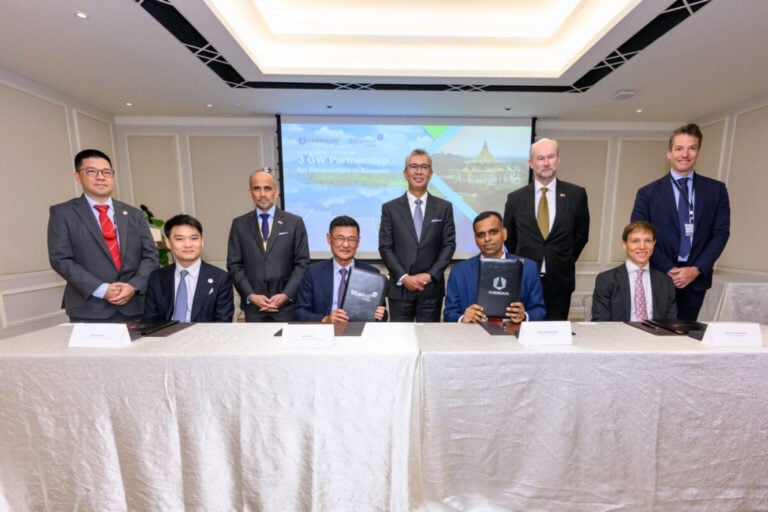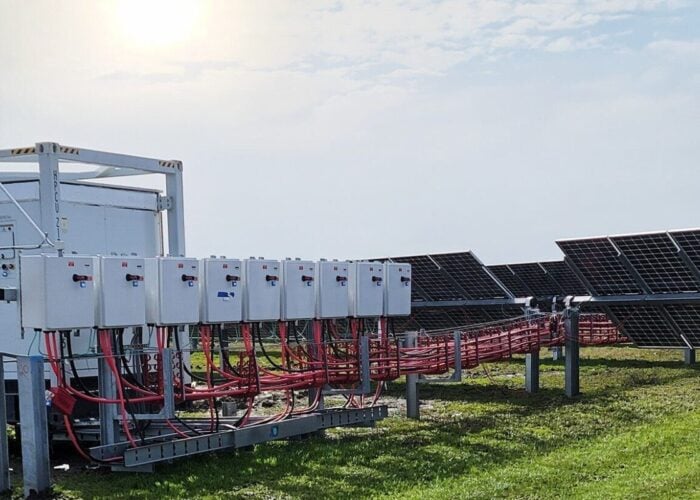
Blueleaf Energy, a Singaporean renewable energy developer, has signed a memorandum of understanding (MoU) with Chemsain Sustainability to collaboratively explore the development of a portfolio of up to 3GW of solar PV and battery energy storage systems (BESS) in Malaysia.
The agreement establishes a framework for collaboration over the next two years, focusing on utility-scale renewable energy development that aligns with Malaysia’s National Energy Transition Roadmap (NETR) and Sarawak’s Post-COVID-19 Development Strategy (PCDS) 2030.
Try Premium for just $1
- Full premium access for the first month at only $1
- Converts to an annual rate after 30 days unless cancelled
- Cancel anytime during the trial period
Premium Benefits
- Expert industry analysis and interviews
- Digital access to PV Tech Power journal
- Exclusive event discounts
Or get the full Premium subscription right away
Or continue reading this article for free
According to the two companies, the MoU will explore the potential for constructing utility-scale solar PV and energy storage facilities in Sarawak, a Malaysian state on the island of Borneo.
The island is also home to several Indonesian states, with the country developing its new capital, Nusantara, in the southeast. Brunei is the only sovereign state entirely on Borneo.
Blueleaf Energy, a pan-Asian renewable energy platform owned by a fund managed by Macquarie Asset Management, will contribute its expertise in renewable energy development and financing. At the same time, Chemsain, a Malaysian sustainability advisory firm, will provide local regulatory knowledge and sustainability frameworks.
Raghuram Natarajan, CEO of Blueleaf Energy, believes that the ambition to build 3GW of renewable energy in Sarawak demonstrates the region’s “immense potential”.
“This MoU marks a significant milestone for Blueleaf Energy’s expansion in Southeast Asia and our commitment to supporting Malaysia’s National Energy Transition Roadmap,” said Natarajan.
Malaysia has established renewable energy targets under its National Energy Transition Roadmap. It aims to increase renewable energy capacity to 31% by 2025 and 70% by 2050. This also includes expanding installed renewables capacity to 14GW.
Meanwhile, the government also wants to see at least 500MW of BESS deployed by 2030 and continued growth after the decade’s end to support those policy goals.
Sarawak, Malaysia’s largest state, has its own ambitious targets under the Post-COVID-19 Development Strategy 2030, which aims to achieve 60% to 70% renewable energy share by 2035.
To read the full article, please visit our sister site Energy-Storage.news.






